Progression to the mean is rarely so stark. After spending most of the 2020-21 season playing like a solid mid-table Premier League team on paper, but rarely translating that quality into points, Brighton has started 2021-22 in fine form. The Seagulls finished 16th in the league last season despite an expected goal (xG) differential that ranked fifth; they turned 1.5 xG per match into only 1.05 goals, and their 1.03 points per close match average — matches that finish within either zero or one goal — ranked 17th.
This season, Graham Potter’s squad has already taken 10 points — three wins and a draw — from four close matches. Their offensive output has been meager, but timely — especially that of Neal Maupay, who’s managed four goals on only 11 shots — and a late draw against Crystal Palace on Monday gave them 13 points, only one behind first-place Liverpool. They still control the ball like a high-budget team (55.4% possession rate), and they prevent opponents from achieving either high-quality or high-quantity shots.
Will it last? Probably not. Their xG differential is actually just -0.04, 10th in the league and far off last year’s pace. They suffered enough bad breaks last year that maybe they’re owed a season’s worth of lucky bounces, but that’s not usually how this works. Despite the hot start, their projected point total for the season, via FiveThirtyEight’s SPI, has risen only from 51 to 54, their projected finish down from ninth to 10th.
Other teams in Europe’s big five leagues have seen their stock rise by even more in the first few weeks of the season; let’s talk about 10 of them. For each, we’ll compare their current season projections at FiveThirtyEight to where they stood at the beginning of the season.
 Napoli (Italian Serie A)
Napoli (Italian Serie A)
So far: six matches, 18 points, +14 goal differential
Projection: Up 12 points, from 69 (fourth) at the beginning of the season to 81 (first)
We begin with the team that has made the biggest statement in Europe early this season. Napoli is not messing around.
Luciano Spalletti’s side have not yet dropped a point in league play, allowing just two goals in six matches. They’re second in goals scored and xG, first in goals and xG allowed. They’re leading the league in shots per possession and while their shot volume is not a new development, they’re now taking far more good shots. They’re ending 51% of their possessions in the attacking third, winning 55% of ground duels, possessing the ball 61% of the time and attempting 466 carries per match and 7.8 passes per possession. Their rankings in those categories: first, first, first, first and first.
Oh yeah, and their +4 goal differential in set pieces also ranks first, while they’re allowing 0.11 shots per possession (second) and 0.09 xG per shot (first).
Napoli has been nearly flawless so far. Some of these numbers will regress over time — the set pieces and ground duels in particular, not to mention the perhaps unsustainably brilliant early play of attackers Lorenzo Insigne (two goals, 18 chances created) and Victor Osimhen (four goals, 58% on ground duels). We’ve been here before with Napoli — they had 24 points after 10 matches last season, then earned 16 from their next 12 — but this squad seemed to have more potential than it was living up to over the last couple of seasons, and new manager Spalletti has unlocked it thus far.
They will drop points and fall into a funk or two, but it’s hard not to look at them as the Serie A favorites.
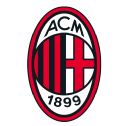 AC Milan (Italian Serie A)
AC Milan (Italian Serie A)
So far: six matches, 16 points, +9 goal differential
Projection: Up six points, from 67 (fifth) at the beginning of the season to 73 (third)
If Napoli weren’t doing what it is doing right now, we’d be talking a lot more about Stefano Pioli’s Milan. They have dropped just two points in league play — they allowed an early Alvaro Morata goal against Juventus and could only salvage a draw — and while their first Champions League go-round in eight years isn’t going incredibly well (two matches, two one-goal losses), their early Serie A work will at least help their odds of playing in the next Champions League. FiveThirtyEight currently gives them a 63% chance of a top-four finish, up from 45% at the start of the season.
The strong early start is doubly impressive considering the freshness of the squad. New transfer signings and loanees have accounted for over 40% of available minutes in league play, and while veterans like Olivier Giroud, Simon Kjaer and Alessandro Florenzi have roles to play, some of the best early contributions have come from youngsters like forward Rafael Leao (22) and midfielder Sandro Tonali (21), who has combined 10 shot attempts (one goal), seven chances created (second on the team) and a team-best 39 ball recoveries.
Milan pressures the ball well — 10.2 PPDA (fourth), 9.8 possessions per game starting in the attacking third (second) — and creates more frequent and high-quality shots than opponents. That’s generally a solid recipe for improvement. Three of their next four league matches are against teams outside the top eight, too, so they could stockpile points further before games against Roma and Inter come around late in October.
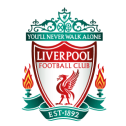 Liverpool (English Premier League)
Liverpool (English Premier League)
So far: six matches, 14 points, +11 goal differential
Projection: Up six points, from 74 (second) at the beginning of the season to 80 (second)
On March 7, Fulham capped a rousing first half at Anfield with a 45th-minute Mario Lemina goal; despite a late charge from the home team, the 1-0 lead held up. Liverpool had lost its sixth league match in seven — five of which were at home — and by the time their next began, they found themselves in eighth place, eight points off of the Champions League pace.
In the nearly seven months since, Liverpool has (a) gotten key pieces like Virgil Van Dijk back from injury, (b) consequently tamped down on some of the crippling breakdowns they were suffering in transition defense, (c) re-discovered their high-pressure identity (their 9.9 passes allowed per defensive action ranks first in the league, and their 9.5 possessions started in the attacking third per match ranks third), and (d) not lost to a Premier League opponent.
They took 26 points from their last 10 matches last season to somehow salvage a third-place finish, and they’ve taken 14 from their first six matches (four wins, two draws) this season. Their xG differential of +1.76 per match towers over that of everyone but Manchester City‘s, and they have pulled a full six points from their first two Champions League matches as well. In other words, they look a lot more like the Liverpool that won the Premier League two seasons ago than the one that found itself in eighth place last March.
Jurgen Klopp is distributing his minutes nicely to a large cast of characters — 15 players have logged at least 250 minutes in all competitions, and 22 have logged at least 100 — and Mohamed Salah is in torrid form up front. Liverpool might not be the betting favorite to win the league, but the season couldn’t have started much better.
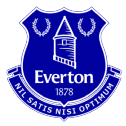 Everton (English Premier League)
Everton (English Premier League)
So far: six matches, 13 points, +5 goal differential
Projection: Up five points, from 50 (12th) at the beginning of the season to 55 (seventh)
This isn’t Everton’s first go-round in the “fast start” department. Just last season, the Everton of Carlo Ancelotti and James Rodriguez took 13 points from its first five matches and still stood second in the table as late as Dec. 27. They finished 10th.
They also play pretty passive defense. Opponents get more touches in the attacking third (161.8, 11th-most in the league) than they do (143.0, 14th), and if or when the midfield trio of Demarai Gray, Andros Townsend and Abdoulaye Doucoure slows down in the finishing department — they have scored a combined eight goals on just 3.1 xG — their passivity on defense, not to mention some issues in set piece defense, could start to become a problem.
SPI does not consider Everton a contender for a Champions League spot just yet, but the Toffees have far better odds of snaring a continental bid of some sort than they did six matches ago.
 Brentford (English Premier League)
Brentford (English Premier League)
So far: six matches, 9 points, +3 goal differential
Projection: Up nine points, from 38 (17th) at the beginning of the season to 47 (12th)
It seemed like Liverpool checked all the major boxes against Brentford last Saturday. The Reds out-shot the Bees (16-12), beat them to loose balls (47 ball recoveries to 38), created more corners (11-2) and started more possessions in the attacking third (5-2). But Brentford did two things really well, too: they won a majority of ground duels, and they took really good shots. Their 12 shots generated 3.1 xG (0.26 per shot) to Liverpool’s 2.6 (0.16 per shot). Down a goal twice, they pulled out a 3-3 draw in front of a delirious Brentford Community Stadium crowd.
This is just what the Bees do. They’re winning 53% of their ground duels (fifth in the Premier League), they’re swallowing up transition opportunities, and their direct attack is creating rare, but ridiculously good, chances: 0.10 shots per possession (20th) and 0.16 xG per shot (first). Oh yeah, and they’ve got a 3-0 goal differential on set pieces (despite taking far fewer of them), which is exactly what you’d expect to see from such an analytics-friendly club.
Is this a recipe for top-five placement? Probably not. Generally speaking, allowing more shots, possession and touches in dangerous areas are not a way to get near the top of the table. But their outlook, per FiveThirtyEight, has shifted dramatically since the start of the season; while they were initially projected to finish right on the relegation line, they’re now a comfortable 11 points ahead of that pace… and only nine behind the top six.
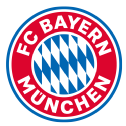 Bayern Munich (German Bundesliga)
Bayern Munich (German Bundesliga)
So far: six matches, 16 points, +18 goal differential
Projection: Up six points, from 76 (first) at the beginning of the season to 82 (first)
The nine-time defending Bundesliga champions dealt with a solid amount of turnover this offseason as manager Hansi Flick left to take over the German national team and was replaced by Julian Nagelsmann, and the incumbent defender duo of David Alaba and Jerome Boateng left for Real Madrid and Lyon, respectively.
With new pieces at the back and a new manager’s system getting implemented, it was fair to wonder if Bayern might start the season slowly. They began with a vulnerable 1-1 draw at Borussia Monchengladbach in Matchday 1, then found themselves tied at 2-2 with Koln late in matchday 2. Slow start indeed, right?
Serge Gnabry scored late to give them a 3-2 win over Köln. Since then, they’ve destroyed four Bundesliga opponents, including RB Leipzig, by a combined 19-2. They beat Borussia Dortmund 3-1 in the DFL-Supercup. They won their first DFB-Pokal match 12-0 (granted, over fifth-division Bremer SV). They walloped Barcelona 3-0 in the Camp Nou to start Champions League play and followed that up with an easy 5-0 win over Dynamo Kyiv.
Robert Lewandowski already has 13 goals in all competitions, 18-year old Jamal Musiala has four goals and two assists in just 338 total minutes, and Nagelsmann has moved struggling winger Leroy Sane back to his natural left side, seemingly solving a yearlong funk in the process. Sane has four goals and 21 chances created in 634 minutes.
The 2020 Champions League winners fell off a bit last year, primarily due to gargantuan defensive breakdowns, but they’re both first in shots per possession allowed (0.08) in Bundesliga play and sixth in xG per shot allowed (0.12). They have reestablished the standard they set in 2020, and their trophy count will likely be quite large once again.
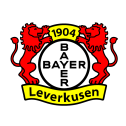 Bayer Leverkusen (German Bundesliga)
Bayer Leverkusen (German Bundesliga)
So far: six matches, 13 points, +9 goal differential Projection: Up four points, from 52 (fifth) at the beginning of the season to 56 (fourth)
It was reasonable to expect a slow start from Bayer as well this season — former Young Boys manager Gerardo Seoane was stepping in as manager, the club sold forward Leon Bailey to Aston Villa and didn’t bring in an immediately ready replacement — late-August addition Amine Adli, from Toulouse, has played only 66 league minutes — and it theoretically meant a lot of pressure on forward Patrik Schick and teenager Florian Wirtz in attack. But they’ve scored at least three goals in three of their last five Bundesliga matches, with Wirtz creating 11 scoring chances to go with an incredible (and unsustainable) four goals in seven shots.
Wirtz’s value, per the crowd-sourced Transfermarkt, was already $49.5 million back in June; he’s already made three appearances for the German national team, and the sky’s clearly the limit for him moving forward. But for now, the most important word in that previous paragraph is “unsustainable.”
The Werkself are the only team in the top 11 of the current Bundesliga table to have a negative xG differential (-0.18 per match); their save percentage is 78%, while opponents’ is just 50%. Opponents are starting 11.2 possessions in the attacking third (second-most), while Leverkusen is starting just 3.8 (easily the lowest). They’re averaging the second-most goals per possession in tie games despite averaging the lowest xG per shot.
As soon as Wirtz stops performing at a superhuman level, scoring could become a serious issue.
 Real Sociedad (Spanish LaLiga)
Real Sociedad (Spanish LaLiga)
So far: seven matches, 16 points, +4 goal differential
Projection: Up four points, from 62 (fifth) at the beginning of the season to 66 (fifth)
As with Napoli and Everton, we’ve been here before with La Real: They led LaLiga after 10 matches last year, but pulled only seven points from their next nine matches and finished a distant fifth. Their only major offseason addition was forward Alexander Sortloth, on loan from RB Leipzig, and in matches against top-four contenders Barcelona and Sevilla, they’ve taken only one total point. But they’ve done something that is of underrated value in their other five matches: beat teams they should beat.
LaLiga’s projected top four teams — Real Madrid, Atletico Madrid, Barcelona and Sevilla — have all dropped points to lower-light teams, but La Real took a full 15 points from Rayo Vallecano, Levante, Cadiz, Granada and Elche and sit second in the table because of it. They’ll need to score some big wins at some point to finish in the top four, but they’ve bought themselves some margin for error.
They’ve done a credible job of playing the possession game thus far; they both start and finish more possessions in dangerous areas, and they attempt more shots overall. Like plenty of possession teams, they have proven vulnerable in transition — they’re allowing just 0.10 shots per possession (third in LaLiga) but at 0.14 xG per shot (18th) — but they play with high energy and tilt the field.
It might not be enough to snare a Champions League spot, but they’re closer to it now than they were to start the season.
 Rayo Vallecano (Spanish LaLiga)
Rayo Vallecano (Spanish LaLiga)
So far: seven matches, 13 points, +6 goal differential Projection: Up 10 points, from 41 (18th) at the beginning of the season to 51 (10th)
Real Sociedad’s most impressive win of the season might not have seemed all that impressive at the time; they took down Rayo, 1-0, with a late penalty from Mikel Oyarzabal in Matchday two. Along with a humbling 3-0 defeat to Sevilla in the opener, it was the newly promoted Franjirrojos’ second loss in a row to start their latest top-division campaign. They haven’t lost since. In their last five matches, they have risen from 20th to fifth in the table, taking 13 points and outscoring opponents by a combined 13-3.
Their lineup is loaded with loanees and cheap or free transfers — newcomers such as full-backs Ivan Balliu and Fran Garcia (who have played every minute) and 35-year old striker Radamel Falcao (three goals in just 97 minutes) have occupied 38% of their minutes so far. Like Brentford, Andoni Iraola’s squad cuts off most easy ball progression lanes, gives opponents a majority of the ball and puts together lots of attractive and effective scoring chances. (Unlike Brentford, they’ve merely broken even on set pieces.)
Again as with Brentford, we’re not exactly talking about a top-four contender here. But they’ve gone from projected relegation to a genuine shot at a top-10 finish, something they have pulled off in the top division only once since 2000. That’s good living right there.
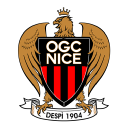 Nice (French Ligue 1)
Nice (French Ligue 1)
So far: seven matches, 14 points, +12 goal differential
Projection: Up 12 points, from 49 (eighth) at the beginning of the season to 61 (fifth)
In 2020-21, manager Christophe Galtier led Lille to 83 points and a surprising Ligue 1 title — winning the league’s Manager of the Year award for a third time — while Nice finished ninth with 52 points. Galtier took the Nice job in the offseason; now Les Aiglons are currently fourth in the table*. Lille are ninth.
Their defensive numbers will regress over time — I’m going to guess that they don’t maintain an 89% save percentage over a whole season — but their fundamentals are strong. Their +0.95 xG differential per game is tied for best in the league with PSG. They suffered their first loss on Sept. 22 with a disappointing stumble to Lorient, but they followed that up with a 3-0 trouncing of Saint-Etienne. They might have staying power.
*They could have been even higher in the table, too. They were leading Marseille 1-0 late when the match was abandoned due to fan violence. Not only were they denied those three points (the match was rescheduled for October), but they also had a point deducted.
Credit: Source link